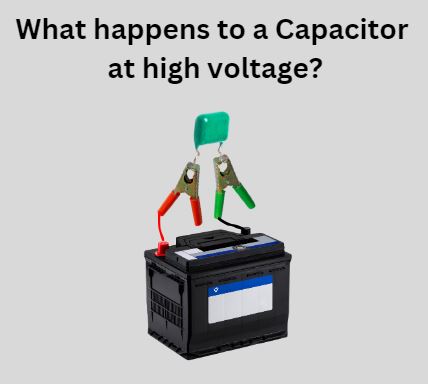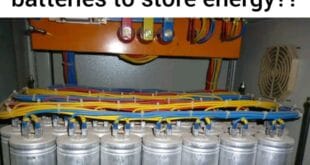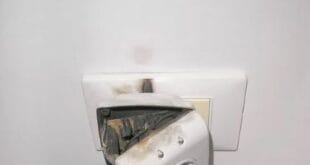What happens to a Capacitor at high voltage?
Answer:
At high voltage, a capacitor can experience dielectric breakdown, leading to insulation failure and potential damage to the capacitor.

Reasoning:
When a capacitor is exposed to high voltage, the electric field across the dielectric material increases. If the voltage exceeds the dielectric’s breakdown voltage, the insulating material can become conductive, causing a dielectric breakdown. This results in a sudden increase in current, potentially damaging the capacitor, creating a short circuit, or even causing it to explode. The severity depends on the capacitor’s design and the extent of the voltage applied.
FAQs
What is dielectric breakdown in a capacitor?
Dielectric breakdown occurs when the insulating material inside the capacitor becomes conductive due to excessive voltage.
What are the signs of a capacitor damaged by high voltage?
Signs include bulging, leakage, burning smell, or a complete failure to hold a charge.
Can a capacitor explode due to high voltage?
Yes, if the dielectric breaks down and the internal pressure builds up rapidly.
How can I prevent capacitor damage from high voltage?
Use capacitors with a voltage rating higher than the maximum voltage in your application.
What happens to the capacitance at high voltage?
The capacitance may initially remain constant, but dielectric breakdown will lead to loss of capacitance.
Is dielectric breakdown reversible?
No, once dielectric breakdown occurs, the capacitor is permanently damaged.
Why do capacitors have a voltage rating?
The voltage rating indicates the maximum voltage the capacitor can handle without risking damage.
What materials are used to prevent high voltage damage in capacitors?
High-quality dielectric materials with higher breakdown voltages are used.
Can capacitors self-heal after high voltage exposure?
Some capacitors, like certain types of film capacitors, have self-healing properties, but not all.
What is the impact of high voltage on capacitor lifespan?
Exposure to high voltage can significantly reduce a capacitor’s lifespan due to increased risk of dielectric breakdown.
 Electrical Engineering World Wiring a Brighter Tomorrow!
Electrical Engineering World Wiring a Brighter Tomorrow!



